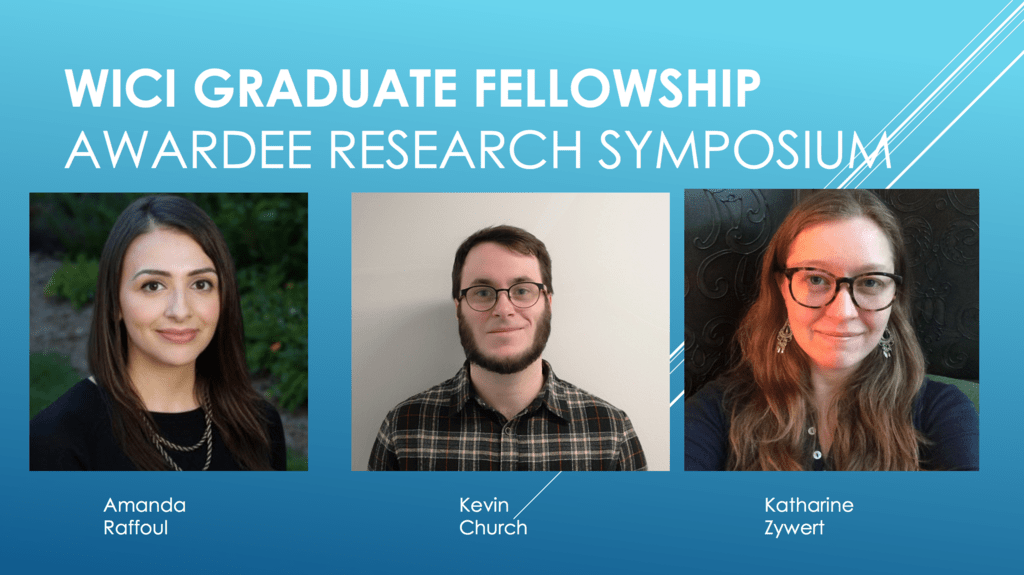WICI Graduate Fellowship Awardees: Research Symposium
Amanda Raffoul: Are we (unintentionally) doing more harm than good? Systems Approaches to the Prevention of Eating-and-Weight-Related Disorders
Kevin Church: The Hidden Geometry of Complex Dynamics and How to Exploit It
Katharine Zywert: Social-Ecological Systems Change and the Future of Human Health
